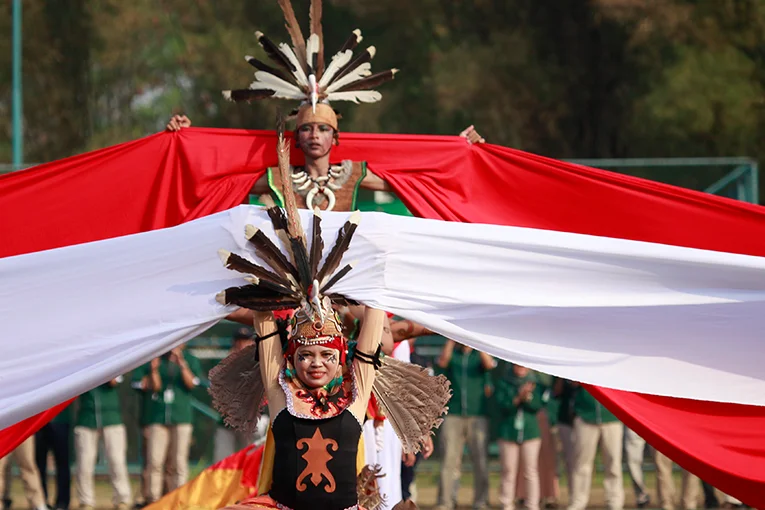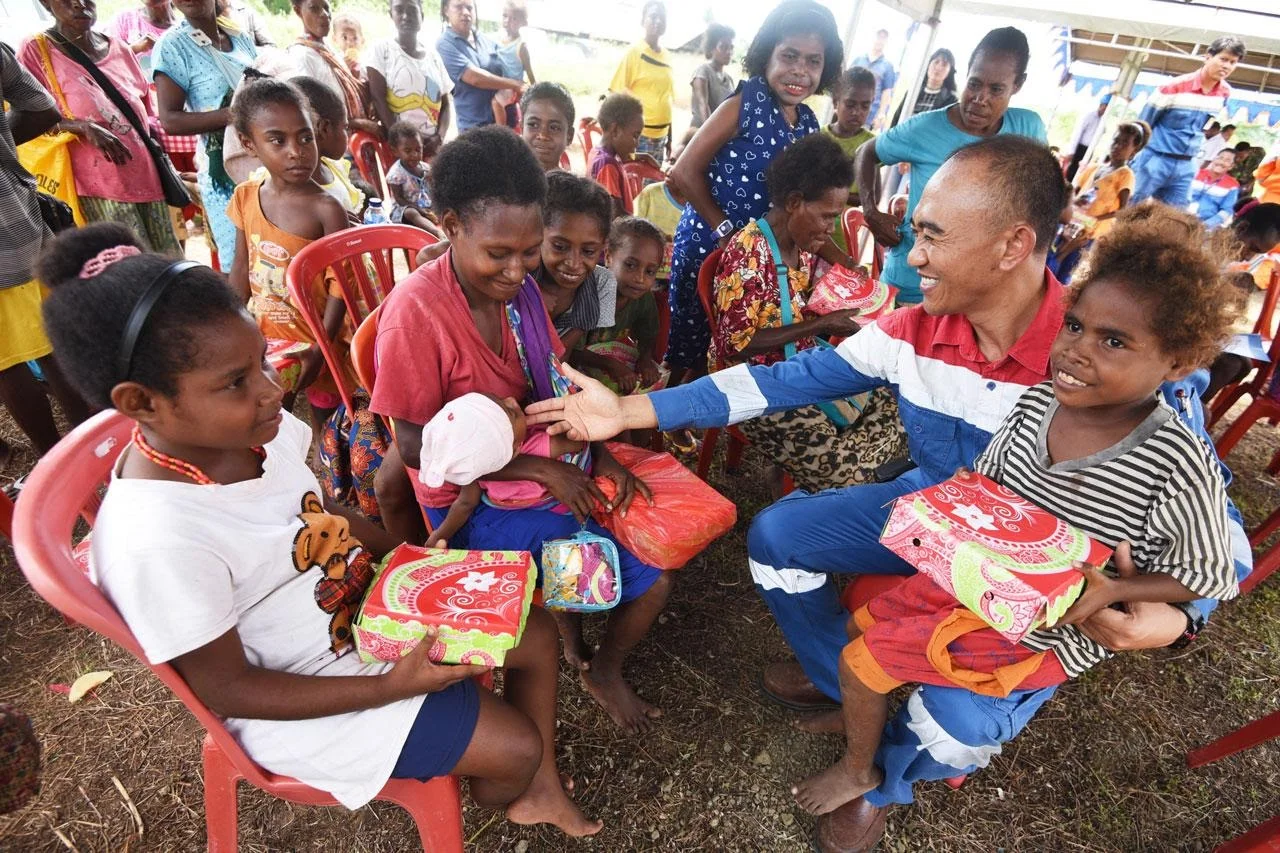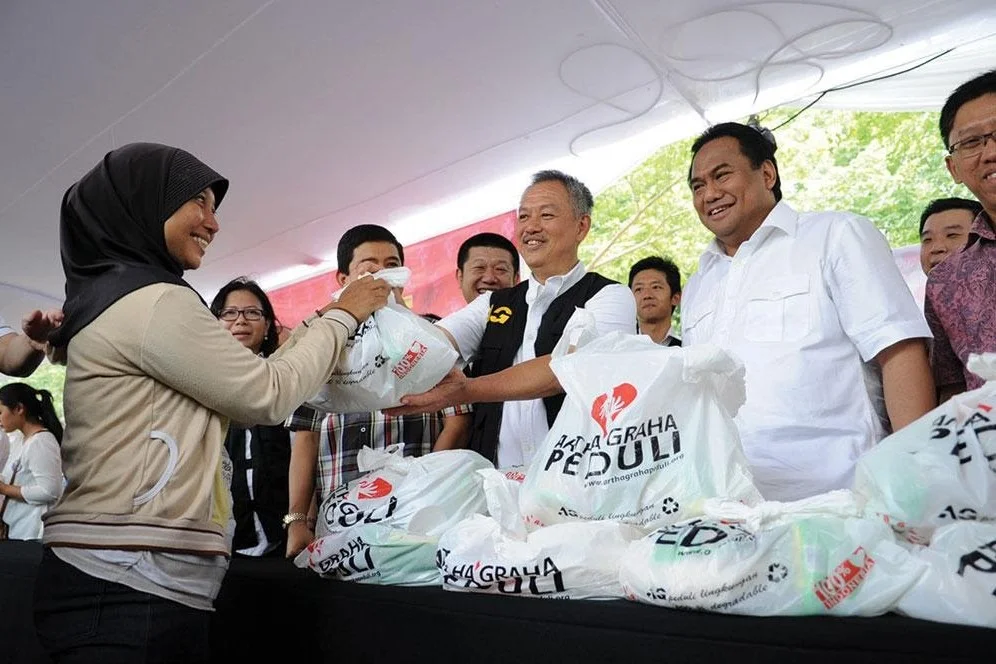CSR at PT Astra Agro Lestari involved the local communities in its business process

The Company has implemented Corporate Social Responsibility (CSR) long time ago as term of CSR become familiar in Indonesia. The Company records its involvement in the Perkebunan Inti Rakyat (PIR) program that was established by the government to support of the transmigration program in order to achieve equal development in Indonesia in period of 80s and 90s. PT Sari Lembah Subur, PT Sari Aditya Loka and PT Suryaraya Lestari are subsidiaries that became partners to the government on the implementation of PIR program. This program become a milestone to the development of the Company as one of the major producers of palm oil in Indonesia by today.
From the beginning, The Company has always involved the local communities in its business process, to become the suppliers of goods and services due to the Requirement on Plantation strategic. This policy provide business and employment opportunities for communities in the Company’s operational areas, and drives the local economy, as well as building positive emotional ties with communities based on common interests and mutual needs.
Motivation is an important factor in the implementation of CSR and determines the dimensions and orientation of CSR programs implemented. The motivation of an organization in carrying out CSR can be known from the form of the implemented program, the size of the organization and the competence of personnel implementing the program, the budget provided for the implementation of the program, the support and participation of the community, and the results of the impact of the implementation of the program have been applied based on stakeholder and/or appraisal agencies. There are various incentives to encourage companies in Indonesia to implement CSR such as: security, image, appreciation / praise, regulatory fulfillment etc.
The Company implements CSR by referring to ASTRA’s goals:
To be a beneficial asset to the nation and the country;
To provide the best service to customers;
To respect individuals and build teamwork;
To continually strive for excellence.
The CSR implementation has been integrated with the Company’s operations under a mission:
“Become a role model and contribute to Nation’s development and prosperity”
in order to materialize a vision:
“Become the most Productive and Most Innovative Agrobusiness Company in the World”.
The Company implemented CSR by referring to the Astra group’s policy prioritizing four sectors, namely: Education, Health, Economy, and Environment. CSR programs are directed and designed to assist communities in meeting their needs or solving their existing problems by encouraging their own initiatives as possible as they can and by making use of available resources. The objective is to achieve self-reliance in order the communities to be self-help and not relying on other parties.
Empowering The Economies Of Local Communities
Company’s existence capable of bringing benefits to the economic development of the surrounding community is one of the ideals of Astra Agro. To achieve this ideal, we implemented the IGA (Income Generating Activity) program, both oil palm-based and non-oil palm-based. Coaching by the Company covered 150 villages in 27 regencies in 8 provinces in Indonesia.
The Non-oil palm-based programs and business sectors developed include fish farming, smoked fish processing, elephant eco-tourism, chicken farming, and entrepreneurship concept integrated with the communities cares about Fire. Coaching by the Company is consistent with the government vision of achieving “Prosperous Village”.
Education
Schools have been built in the Company’s ring 1 company (inside and outside the company concessions) in the form of Madrasahs, PLS (Education Outside of School), Kindergarten, Elementary School, Junior High School, and/or High School/Vocational School. As of March 2019, the company has built 194 public schools (government-owned schools) at the elementary and junior high school levels in the areas of Sumatra, Kalimantan and Sulawesi. We also provided training specifically for 37 public schools enrolling 9094 students.
Coaching and mentoring of public schools focuses on improving the performance and competency of the teaching staff through the provision of training. More than 500 teachers from 37 public schools spread across Sumatra, Kalimantan, and Sulawesi have received training and their competence will continue to be improved through future guidance from the company.
HEALTHCARE
In the health sector, the Company ran the Posyandu Revitalization Program. This program was implemented to support people’s selfreliance so that they can acquire some basic healthcare services independently. Posyandu Revitalization Program managed to encourage the people to provide basic healthcare services in collaboration with Community Health Centers (Pusat Kesehatan Masyarakat/Puskesmas). The company developed 331 External Posyandu from 191 villages managed by 1,665 cadres who were mostly women villagers who care about the health of their people and environment. The main target of External Posyandu development were the villages around the Company.
environment
We always strive to carry out our environmental responsibilities to keep business activities in balance. In practice, we are guided by the principles of environmental conservation which includes the protection of life support systems, preservation of plasma nutfah and sustainable usage. Some programs such as rehabilitation and conservation research have been consistently implemented and have provided good results.
 Albania
Albania Algeria
Algeria Andorra
Andorra Argentina
Argentina Armenia
Armenia Australia
Australia Austria
Austria Azerbaijan
Azerbaijan Bahrain
Bahrain Belgium
Belgium Bolivia
Bolivia Brazil
Brazil Bulgaria
Bulgaria Cambodia
Cambodia Cameroon
Cameroon Canada
Canada Chad
Chad Chile
Chile China
China Colombia
Colombia Costa Rica
Costa Rica Croatia
Croatia Cyprus
Cyprus Czechia
Czechia Denmark
Denmark Ecuador
Ecuador Egypt
Egypt Finland
Finland France
France Georgia
Georgia Germany
Germany Ghana
Ghana Greece
Greece Hungary
Hungary Iceland
Iceland India
India Indonesia
Indonesia Ireland
Ireland Italy
Italy Jamaica
Jamaica Japan
Japan Jordan
Jordan Kazakhstan
Kazakhstan Kenya
Kenya Kuwait
Kuwait Latvia
Latvia Lebanon
Lebanon Libya
Libya Lithuania
Lithuania Luxembourg
Luxembourg Malaysia
Malaysia Maldives
Maldives Mali
Mali Malta
Malta Mexico
Mexico Moldova
Moldova Monaco
Monaco Morocco
Morocco Netherlands
Netherlands New Zealand
New Zealand Nigeria
Nigeria North Macedonia
North Macedonia Norway
Norway Oman
Oman


